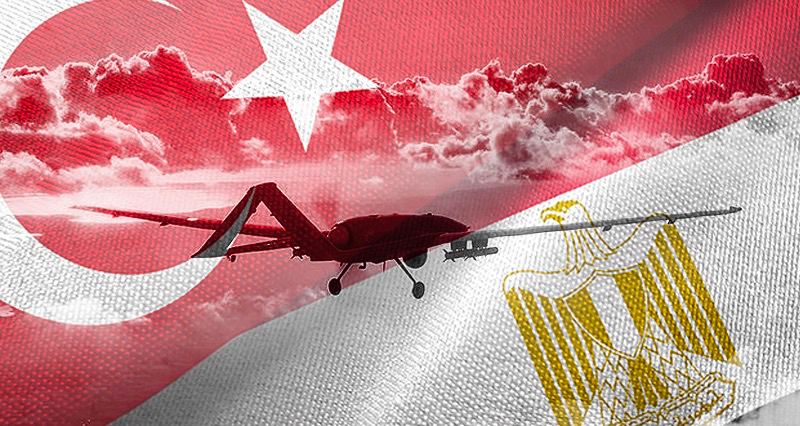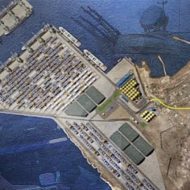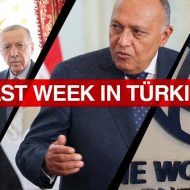Reporting from Cairo, Egypt
It seems that normalizing relations between Cairo and Ankara has already been completed, according to the expression of Turkish foreign minister Hakan Fidan.
There was a major breakthrough in relations between the two countries after years of tension, on the sidelines of the opening ceremony of the World Cup, which was held in Qatar in late 2022. On the sidelines of the high-profile sporting event, Egyptian and Turkish leaders Abdel Fattah al-Sisi and Recep Tayyip Erdogan shook hands, in a surprise for all observers.
The handshake served as a whistle announcing that the two countries had overcome their differences and ushering in an accelerated and gradual normalization process that began to build up with a telephone call al-Sisi had with Erdogan following last year’s earthquake in Türkiye, and the visit of Egyptian Foreign Minister Sameh Shukri to Türkiye in solidarity with the Turkish people. In July 2023, the two countries announced the restoration of their diplomatic relations to the ambassadorial level.
But the process needed more than that to announce that it had reached its final stage.
A gift before the plane landed
Observers in Egypt followed the news of the Turkish President’s expected visit to Egypt in the middle of this month with great satisfaction, as it was the final word that would put an end to the tensions of the past.
But the announcement of Ankara’s agreement to deliver combat drones to Egypt, which came from Turkish Foreign Minister Hakan Fidan days before the visit, was, in the opinion of many, a new surprise.
In their view, this agreement not only moves the relationship between the two countries from rivalry to normalization, but it also moves them to deep friendship and even some degree of military alliance.
According to the Turkish Minister’s statements, the two leaders will discuss bilateral and regional issues in the areas of trade, energy and security.
Quite simply, this means that the two countries will immediately go beyond the formal objectives of this type of visit, such as emphasizing the depth of the bonds of cordiality, friendship and cooperation between the two countries, to immediately engage in discussing the regional and international circumstances that do not afford the luxury of postponing.
Although the issue of Egypt’s request for Turkish drones was hidden from all observers, Ankara’s announcement of its approval prior to the visit was like a gift before the president’s plane landed. At the same time, it confirms the existence of strong and open communication channels between the two countries during the past months, which allowed the exchange of demands and various points of view on the concerns of both parties.
Positive movements
According to more than one source, the two countries formed exploratory committees more than a year ago to resolve the outstanding points, whether regarding the issues of Eastern Mediterranean gas or the situation in Libya, and even the dispute over the presence of members of the Muslim Brotherhood inside Türkiye.
According to these sources, the dispute between the two countries over the Brotherhood is no longer a fundamental issue in the relations.
The importance that Egypt attaches to this issue has declined significantly in favor of Cairo’s desire for more cooperation to reach mutually beneficial understandings in regional security in general, and to stabilize the situation in Libya in particular. Cairo has also become more understanding of Ankara’s concerns regarding the demarcation of special economic zones in the eastern Mediterranean.
Although the normalization of relations is a matter managed by the diplomatic in the two countries, the transfer of Hakan Fidan from heading Turkish intelligence to assuming the foreign ministry played a very important role in accelerating the wheel of normalization.
According to the sources I spoke to, the intelligence services of the two countries had a better understanding of the essence of the dispute. Fidan’s great knowledge of the roots of the problems and the importance of working to solve them quickly made his movements more positive than before.
Regional imperatives
At the same time, the regional and economic conditions that Egypt is going through played a prominent role in changing the tactics and strategy it followed during the past years.
The most populous country in the Arab world suffers from serious problems on its borders. There is war in Sudan, instability in Libya, and failure in negotiations with Ethiopia on organizing the work of the large dam it is building on the Nile. The Israeli war on the Gaza Strip also caused a fireball to reach its territory.
Therefore, zeroing out the problems with Türkiye expands Cairo’s strategic and commercial friendships, especially in light of its stifling economic crisis that restricts its geopolitical movements.
As for Türkiye, developing relations with Egypt reinforces the steps it took two years ago to end tensions with major actors in the Arab world such as Saudi Arabia and the UAE.
Türkiye needs strong relations with Egypt as it is a huge market and one of the important players in resolving any settlement related to the Libyan situation, as well as in the Mediterranean Gas Forum.
At the same time, the two countries find themselves agreeing on the danger of the continuation of the Israeli war on Gaza to regional security, for which Cairo and Ankara constitute an extremely important cornerstone in maintaining its stability.
It seems that the two countries realized that their differences harmed their economic and regional interests.
Various countries around the world have come to view arms sales as one of their foreign policy tools to build influence with other countries. Therefore, in my view, the Egyptian request to obtain the Turkish drones and Ankara’s agreement to that was an unmistakable signal that the two countries were on their way to something higher than mere normalization.
In fact, Egypt does not need these drones, and it has enough different alternatives, but they were a test of the extent of Ankara’s determination to improve relations. Türkiye picked up the signal intelligently and achieved a goal that is in the interest of both peoples.









Leave a Reply